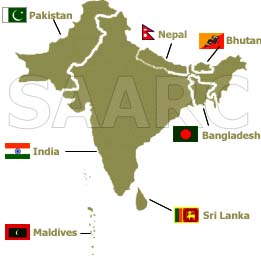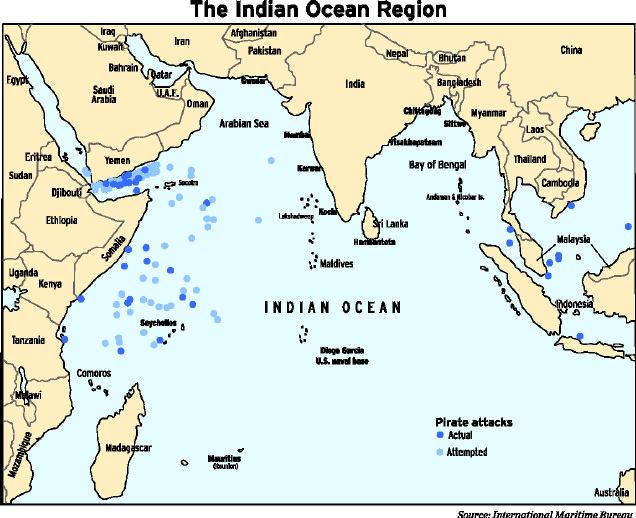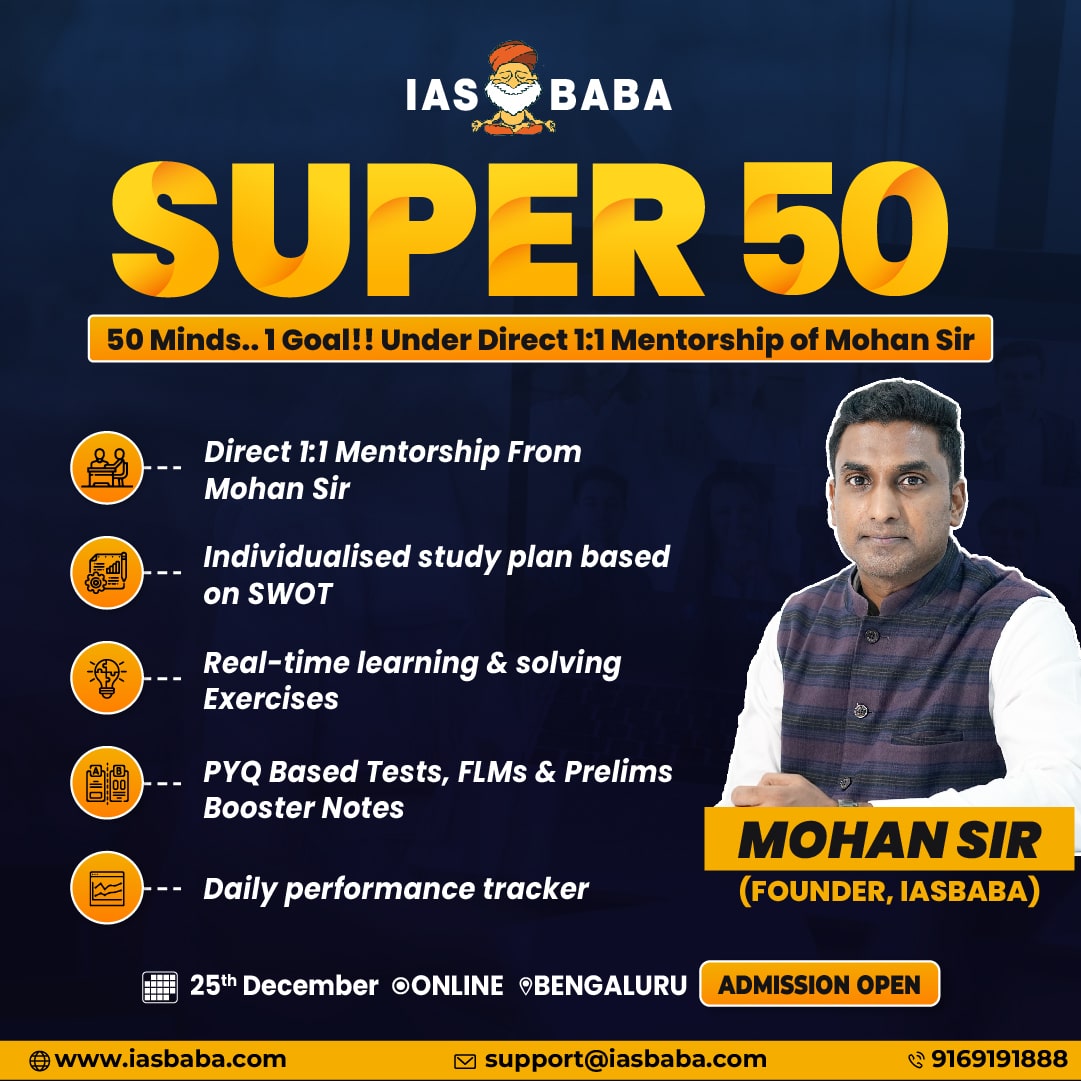IASbaba's Daily Current Affairs Analysis, IASbaba's Daily Current Affairs Oct 2016, International, UPSC
Archives
IASbaba’s Daily Current Affairs – 13th October, 2016
INTERNATIONAL
TOPIC: General Studies 2
- India and its neighbourhood- relations.
- Bilateral, regional and global groupings and agreements involving India and/or affecting India’s interests
- Effect of policies and politics of developed and developing countries on India’s interests, Indian diaspora.
Opportunity at the Indian Ocean
The recent Uri attack had one of its prominent casualty- postponing of SAARC summit, 2016. The regional cooperation is India’s boost for a wider economic prospect and thus India has to look at other alternatives for regional cooperation.
- After the Uri attack, SAARC summit was boycotted by India, Bangladesh, Afghanistan, Sri Lanka and Bhutan.
- But it has brought into view the Indian Ocean Region and the idea of placing the wider region at the heart of a new neighbourhood policy for India itself.
- Though the PM has made multiple foreign visits, there is still a need for India to have a defining international economic project.
SAARC has been ineffective
- The eight nation body’s November annual summit was cancelled after September’s terrorist attack in India.
- SAARC has often been viewed as ineffectual and many observers have asked if its position has become untenable.
- Recently, Sri Lankan PM expressed for a body that focuses on Indian Ocean.

Picture Credit: http://wikilists.info/wp-content/uploads/2011/05/saarc-countries.jpg
Reviving the Indian Ocean Focus
- Recently, a think tank- The India Foundation held an Indian Ocean summit in Singapore in September 2016 which aimed to raise India’s profile as a power with interests across Asia.
- Though the event’s agenda had a softer focus—on cultural ties based on Hinduism and Buddhism, there was a harder edge too, with India positioned as a counterweight to an increasingly assertive China.
- When the Foreign Secretary of India argued in favour of ‘reviving the Indian Ocean as a geopolitical concept’, it indirectly pointed against Chinese encroachment in the Bay of Bengal.
- Many East African nations have been visited by Indian PM alongside trips to the Seychelles, Mauritius and Sri Lanka. This initiative should focus on developing potential of economic benefits from greater regional trade rather than undue importance to narrow cultural concerns on the one hand, and vague geopolitical worries about China on the other.
African focus in the Indian Ocean Region
- India will be the world’s fastest growing nation in the decade to 2024, with its gross domestic product expanding by an average of 7% per year.
- But also of the world’s six fastest growing economies over that same period, four will also be in east or southern Africa, including Kenya and Tanzania.
- This potential growth is already attracting corporate India, with groups like Tata and Mahindra targeting African markets.
- Many countries like Myanmar and Indonesia are also expected to be a part of fast growing economies.
- With the schemes like Make in India, the goods manufactured in domestic factories will have markets around eastern Africa and South-East Asia.
- This will be a big boost for India’s presence beyond South Asian sub-continent.
Picture credit: http://www.thehindu.com/multimedia/dynamic/00944/new_07th_indian_oce_944341f.jpg
Aligning the interests
- Though the economic and trade potential are immense, the problem lies in the fact that the links between these nations are often feeble.
- South Asia is one of the world’s least economically integrated regions. But the Indian Ocean, which encompasses roughly 40 nations and stretches from Australia to East Africa, is hardly any better connected.
- As per estimates, a third of global bulk cargo and two-thirds of oil shipments cross the Indian Ocean.
- But most of this goes to different countries, rather than being traded between countries in the region.
Way forward- Improving the situation
- India has to take the lead role in defining and implementing the economic trade within the Indian Ocean region.
- The idea of creating a new regional body, or expanding an old one, is one approach being discussed.
- Expansion of Indian Ocean Rim Association, a low-profile grouping of 21 countries is a starter. Though it has its drawbacks. In SAARC, India dominated the group, the Indian Ocean Group countries would suffer the opposite problem where the countries having hardly anything in common will have to be diffused together.
- Also, the record of previous attempts to push alternative regional bodies is not very encouraging. For instance, BIMSTEC which has been not so active despite pursuing of stronger regional ties. Hence, the evidences which stated that regional bodies hardly do much to improve trade flows in any case, stand true.
- China’s successful OBOR initiative shows that tangible projects between countries are normally the best basis for new economic cooperation across regions.
- Thus, to improve the situation, India should make bigger, unilateral push to improve regional connectivity, including greater financial support for new infrastructure investment and a new push to reduce trade barriers, beginning with its own.
- India has to push projects like Myanmar-Bangladesh-India gas pipeline or provide greater development funding assistance to poorer neighbours.
- The Indian Ocean has the potential to become the most important source of new global growth over the next 20 years, just as the Pacific rim powered the world’s economy for much of the last 20 years.
- For India to emerge at the heart of new regional order, it should be ready to give finances to support developmental activities in region.
Connecting the dots:
- Moving away from SAARC, India has immense opportunities to develop various other regional groupings. What are they and briefly mention their importance.
- IOR provides plethora of opportunities to India to develop its economic, political and geographic importance. Evaluate.
ECONOMICS
TOPIC: General Studies 3
- Indian Economy and issues relating to planning, mobilization of resources, growth, development and employment.
- Inclusive growth and issues arising from it.
The everyday relevance of 2016 economics Nobel
In news: The Nobel Prize in Economics for 2016 has brought forward the criticality of economics in day to day life. The Nobel Prize in economics has created enthusiasm outside the circles of economists as it is relevant to everybody. Let us have a look at what the Nobel Prize in economics for 2016 means to us.
- Oliver Hart and Bengt Holmstrom were chosen as recipients of the 2016 Nobel Prize in economics for their work in contract theory.
- Their work spans many years of human engagement and explores the contracts in their research studies in diverse areas such as employer-employee relationships, insurance, banking and regulators, among others.
- Hart and Holmstrom have tried to provide a framework to understand how such contracts are designed. This might help lay people understand the manner in which their employer has structured their salary.
- It is important to keep in mind that there are no definitive answers to questions about contracts. Most answers to economic questions come with the caveat that- it depends on the context.
Contract theory
- Contracts are legally binding agreements governing who will do something in exchange for something under some circumstances.
- The theory holds that the contracting costs between economic units (parties) are shaped by the nature of the interaction between them.
- These costs are not operational costs, such as commission fees or transportation costs. Instead, they stem from the lack of clarity and enforceability of the terms of the interaction and each unit’s dependence on the interaction.
- Thus, as Oliver Hart puts it- Behind every partnership lurks an “incomplete contract”.
- For example, if two people decide to open a lemonade shop. Person ‘X’ decides to bring material (cups, raw material etc.), while person ‘Y’ make the lemonade. X will serve while Y will be the cashier
- X will get worried that Y might take away more cash than him. Thus, they decide to draw a contract which dictates that returns of their operation must be split evenly. But then Y starts to worry that ‘good lemonade’ will make business successful and, X has no role in it and thus 50-50 split is not just. Thus, both will eventually enter into contract where each one’s responsibility will be decided and adhered to.
The regulators need to pay attention
- Employment contracts are best seen in the context of principal-agent problems.
- From the standpoint of public policy, the work of this year’s Nobel winners may be a useful framework to understand the outcome of the recent telecom spectrum auction.
- A highlight of the auction was that spectrum in the efficient 700 MHz remained unsold. Bidders felt the reserve price, or floor for auction bids, was too high for this band.
- TRAI and the telecom ministry (agents) of Indian citizens (the principal) should question the outcome- Were the agents too risk averse? If the answer is affirmative, then if there are any better set of incentives which can be provided to make sure the principal does not lose opportunities?
- Such questions establish a contractual relationship between various concerned parties.
Banking
- Even after 2008 financial crisis, bankers are paid large bonus. This creates a huge outrage as those who created the crisis are being continued to paid exorbitant sums. Why?
- This is because the bonuses are built into their contracts. This is a debatable question of how and why bankers should be given employment contracts that involve large bonuses despite adverse performance.
- Explanation- shareholders of a bank (the owners, or principal) employ bankers (agents) to run the bank. The shareholders are interested in returns but it is the banker who is responsible for the day-to-day decisions that generate those returns. Thus, the banker has to be compensated for her/his services.
- Typically, the principal cannot observe the agent’s effort. If agents are offered a fixed salary regardless of effort, there is not much incentive for hard work. This is visible in government jobs.
- Thus, in many industries including banking, there is a performance-based pay where better outcomes for the shareholder (greater returns) are to be rewarded with better compensation for the banker.
- However, it involves other tricky parts too- the owners might be interested in long term performance but if bankers’ pay is tied into the short-term share price, it might create conflict of interest. Bankers might work to boost the immediate share price at the cost of long-term investment.
Teaching
- Sometimes, the outcomes of efforts are not measurable.
- Teachers are instrumental in the overall development of students. Thus, it is hard to measure what role a teacher plays in a child’s life
- Though scores are there to measure the children’s performance, the teacher’s pay linked to only measurable outcomes might lead to teachers focusing on tests alone, ignoring more general learning and all-round development.
Is there a perfect contract?
The Nobel Prize winners have proved that there is no ‘perfect contract’. But they have showed ways to improve outcomes.
- Professor Holmstorm argued that instead of paying agents on basis of share price of the company alone, their pay should be linked to external outcomes (for example, to the relative share price against other similar companies).
- The former is based on luck whereas the latter is competitive. This leads to more efforts by the employee and better measures of relative performance.
- This is possible only when the effort is measurable and can be linked to performance. This includes banking and manufacturing industry.
- However, if the result is immediate, the efforts are not easily visible. In such situation, pay should not be based on performance. For example, high risk jobs should have fixed salary whereas stable jobs should attract performance based pay.
- Thus, parties cannot specify detailed contract terms in advance as no one knows what will happen in future. This problem of ‘incomplete contract’ as specified by Prof. Hart then states solution in such condition.
- When future eventualities are not known, the contract should specify who has the right to decide what to do when the parties cannot agree. Depending on the eventuality that arises, the party with the corresponding decision rights has more bargaining power, and can secure a better outcome for itself. Decision rights thus substitute for performance-based pay.
- Socially optimal contracts ensure that all play a moral role. For example, if the car owner knows he will get full payment when the car is damaged, he will not be as careful as he would be if he were liable.
- Another application of Prof. Hart’s theory of incomplete contracts is the question of whether providers of public services, such as schools, hospitals, and prisons, should be privately owned or not.
- Such situations lead to a trade-off between investments in quality and cost reduction. The private sector might focus too much on cost reduction, but proper contracts can provide incentives for quality as well. Whereas in case of public sector, there is little incentive no matter what and how the work is done.
- Thus, the Nobel Prize winners’ insights have indeed found their way into modern contracts. Now it remains to be seen what is an optimal contract for a regulator and how it can be drawn.
Connecting the dots:
- What do you understand by contract theory? What is its importance in Indian context? Discuss.
MUST READ
Towards a kerosene-free India
Resetting the moral compass
The right to copy
Builders can be arrested for not delivering: National Consumer Commission
Weather extremes: The deluge after the drought
India at Kigali: ‘Don’t use financial incentives to misguide developing nations on HFC phase-out deal’
Historical evidence is not enough to prove a caste’s backwardness
The Reserve Bank of India’s new neutral rate
Assam needs an action plan
The entry problem in education
Why India’s slum leaders matter















